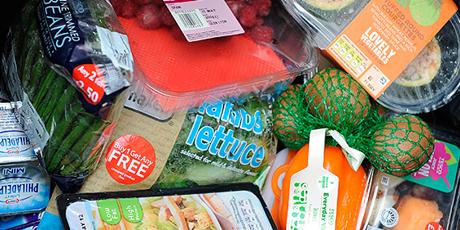The Government should establish a national food waste reduction target to drive efforts to reduce the food waste costing the average person in the UK £200 per year and supermarkets should publicly report data on the amount of food they bin and relax rules that prevent the sale of “wonky vegetables” to combat food waste, the Environment Food and Rural Affairs Committee says in its report out today.
“One-third of food produced for human consumption is lost or wasted globally and in the UK over £10 billion worth of food is thrown away by households every year. Food waste has grotesque economic, social and environmental costs.” says Neil Parish MP its chairman, adding
“Economically, food waste costs households hundreds of pounds a year and causes increased disposal costs to local authorities, pushing up council tax bills.
“Socially it is a scandal that people are going hungry and using food banks when so much produce is being wasted. And environmentally it is a disaster, because energy and resources are wasted in production only for the food to end up rotting in landfills where it produces methane—a potent climate-changing gas.”
A priority, says the committee, must then be placed on awareness raising work.
In 2015 alone, £13 billion of food was wasted in the UK, costing the average household £470 a year—or those with children £700. The MPs believe that awareness of food waste should start at an early age and they recommend that the Government examines how lessons on food and food waste can be incorporated into the curriculum.
Standards for food presentation said the committee, have resulted in criticism that retailers discriminate against food, particularly fruit and vegetables, which are perfectly fit for human consumption but do not meet artificial cosmetic standards.
It is estimated that 5–25% of apples, 9–20% of onions, and 3–13% of potatoes are rejected on cosmetic grounds. Making small changes to specifications (such as a 2 millimetre change to potato specifications) could, it is estimated, “reduce waste by 15%”.
The report also concludes that local authorities should remain responsible for addressing the specific challenges and barriers to increasing food waste collections that they face at a local level.
However, they add, guidance and best practice should be shared at a national level in order to move towards a standardised approach and to assist local authorities to improve their individual performance.
The MPs say that the incoming Government should consider a national strategy to ensure a consistent collection of waste and recycling across the UK.







